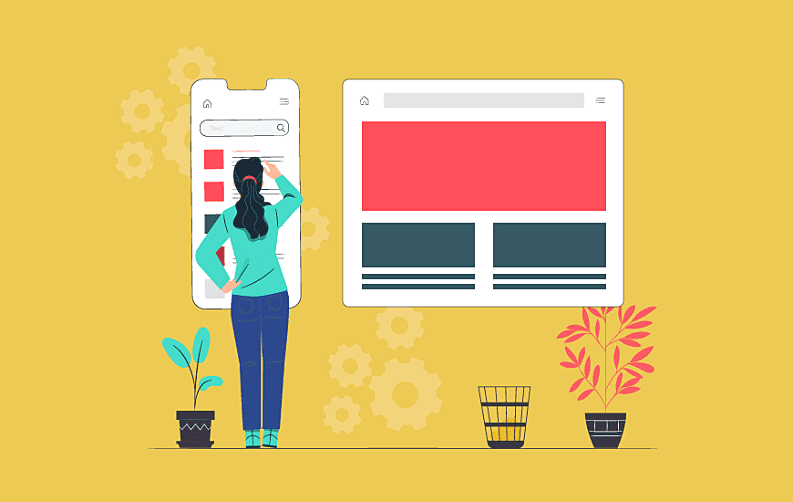
Website and Mobile app are two most important mediums which are used to convey information about the business or any kind of special offers. Designers who work on both these kinds of designs view them as two different things.
The biggest misconception is both these mediums are interchangeable and the difference between the two is bigger than one may think. Mentioned below are some noteworthy differences between a website and an app design that will also help you in improving the overall design.
Making Use Of Targeted Push Notifications
Talking about app design, designers can use the user's geographical location with an objective to send geographically-targeted push notifications. In most of the cases, it is seen that business owners of different sectors make optimum utilization of this feature to effectively promote the brand across specific regions.
Furthermore, taxi-hailing and food ordering apps for mobile devices are already using this feature. However, this kind of functionality is not available with website design.
1. Processors
In comparison to computers, mobile devices generally have slow processors, which clearly means that there is a need of a simple layout for your app. On the other hand, when it comes to website designing, there is no such problem. This means that one size fits all strategy cannot be applied here.
In other words, what works for your website might not work for your smartphone app. In addition, apps that require huge mobile data will not be preferred by your esteemed users.
2. Contextual
A large number of people view websites on their desktops while being seated, whereas mobile apps are accessed by users on their smartphones while walking or by doing jogging in the morning. So, if you are working as a designer, it is very important for you to make sure that all the app features can be used on the go in a hassle-free manner. This is a very crucial distinction, which should be checked.
3. Combining Features of Smartphones
The first thing that all modern-day mobile phones enable people to do is making phone calls. Your mobile device might not include fast processors or big screens, but when it comes to developing apps, there are some important details that are required to be considered properly. In this regard, the biggest one is to integrate hardware and features of the phone into a mobile app to enhance the experience.
Thus, apps amalgamating mobile phone functions are comparatively more popular. This brings a completely different opportunity to app designers which is missing in website design.
4. Screen-Size
While considering the designing factor, the size of both interfaces should be considered. Smartphones, which means a smaller display has lesser smaller pixels and therefore, heavy graphics and big-picture galleries should not be taken into account. On the other hand, for accessing a website on a desktop you have a keyboard at your disposal and this bigger display can include as many features as possible. This is because websites don't face the clutter challenges which small screen apps go through.
All these distinctions should be studied and needs to be kept in mind while designing a website and mobile app. This way you can meet the expectations of a website and mobile app users.
For other UX/UI design trends related articles, hit the subscribe button and keep yourself abreast with the latest updates of the mobile app industry.
Frequently Asked Questions

By Sakshi Kaushik

Content Writer (B2B Editorial)
A passionate writer and tech lover, she strives to share her expertise with mobile app developers and fellow tech enthusiasts. During her moments away from the keyboard, she relishes delving into thriller narratives, immersing herself in diverse realms.











